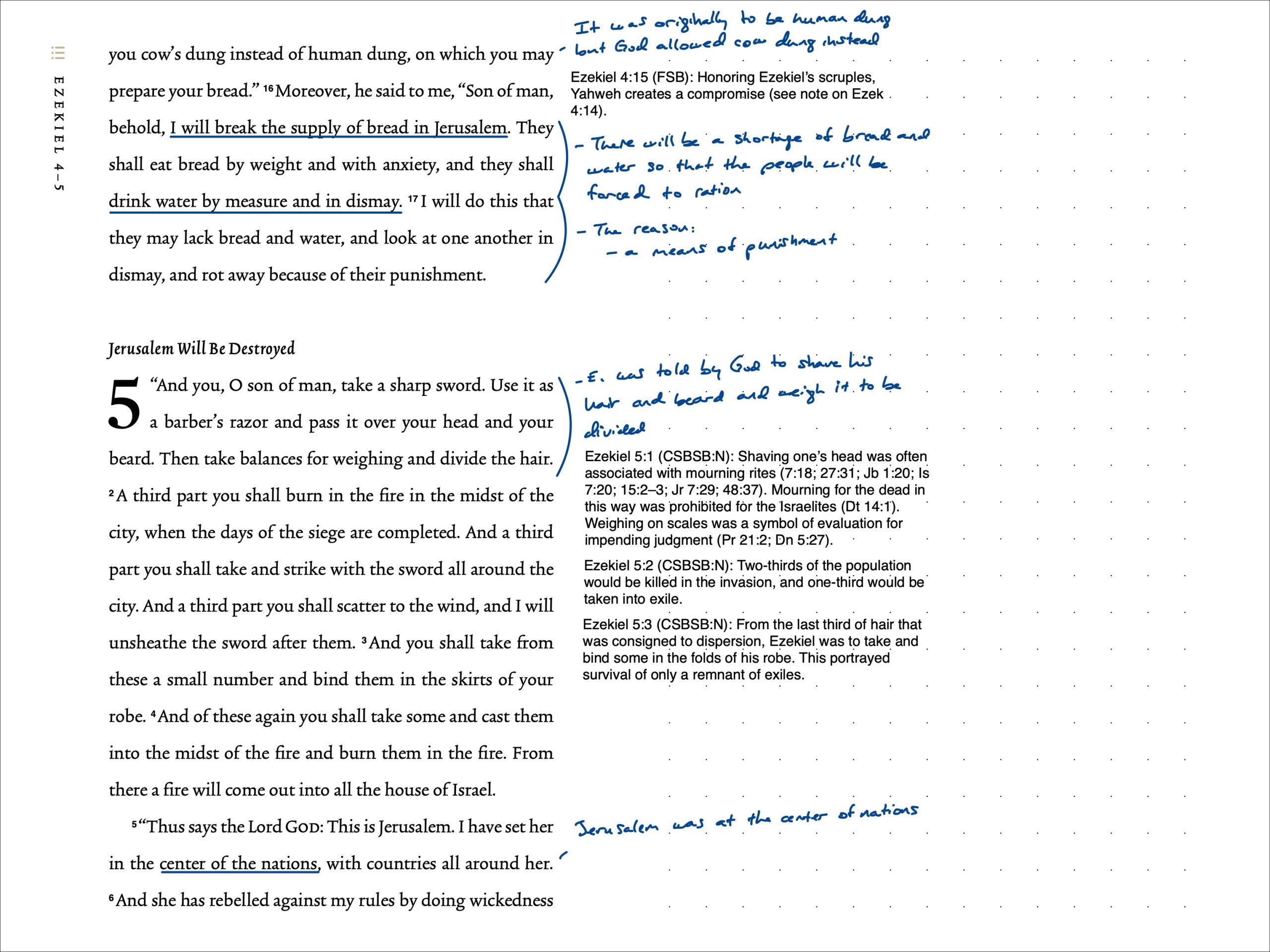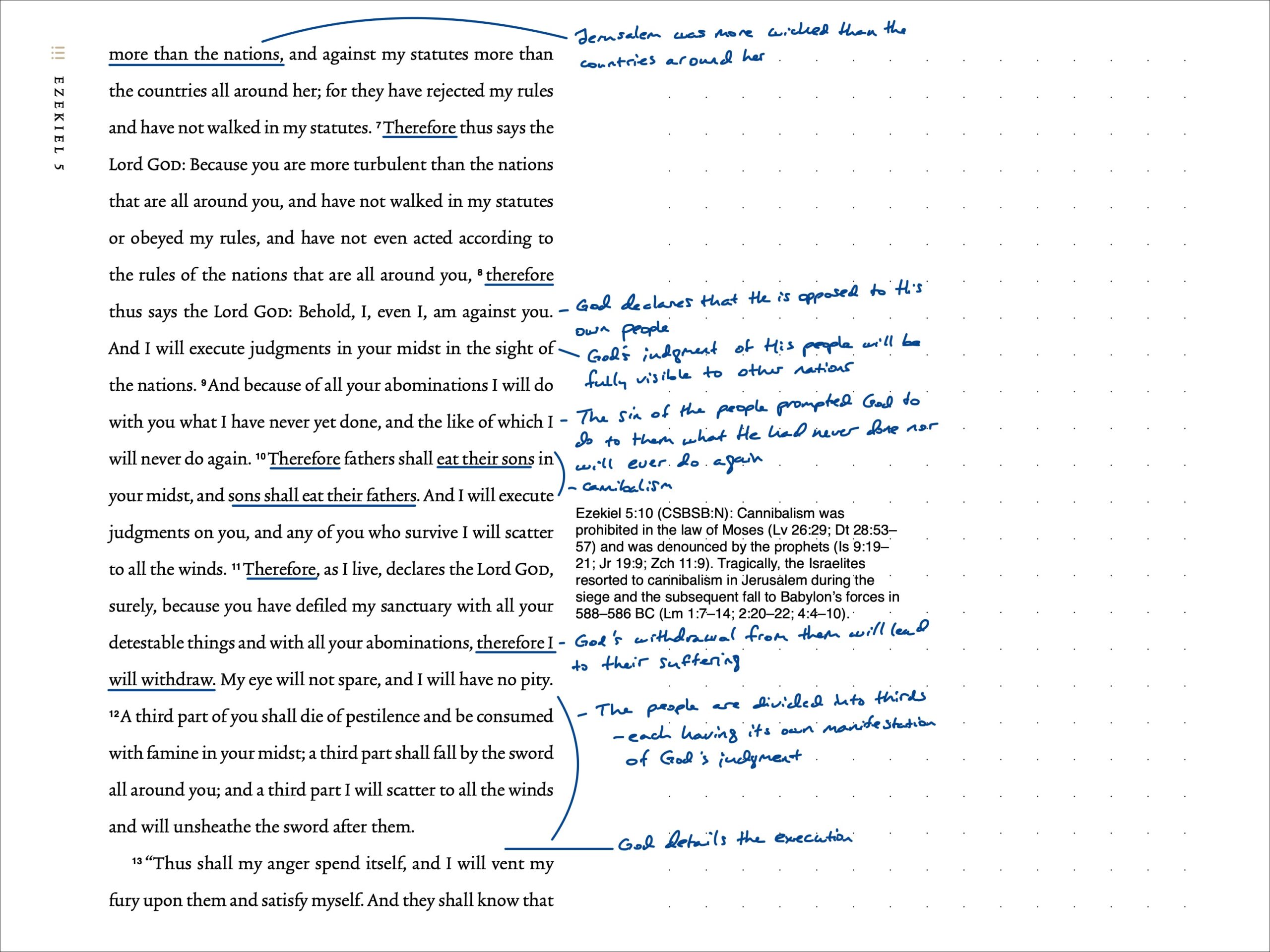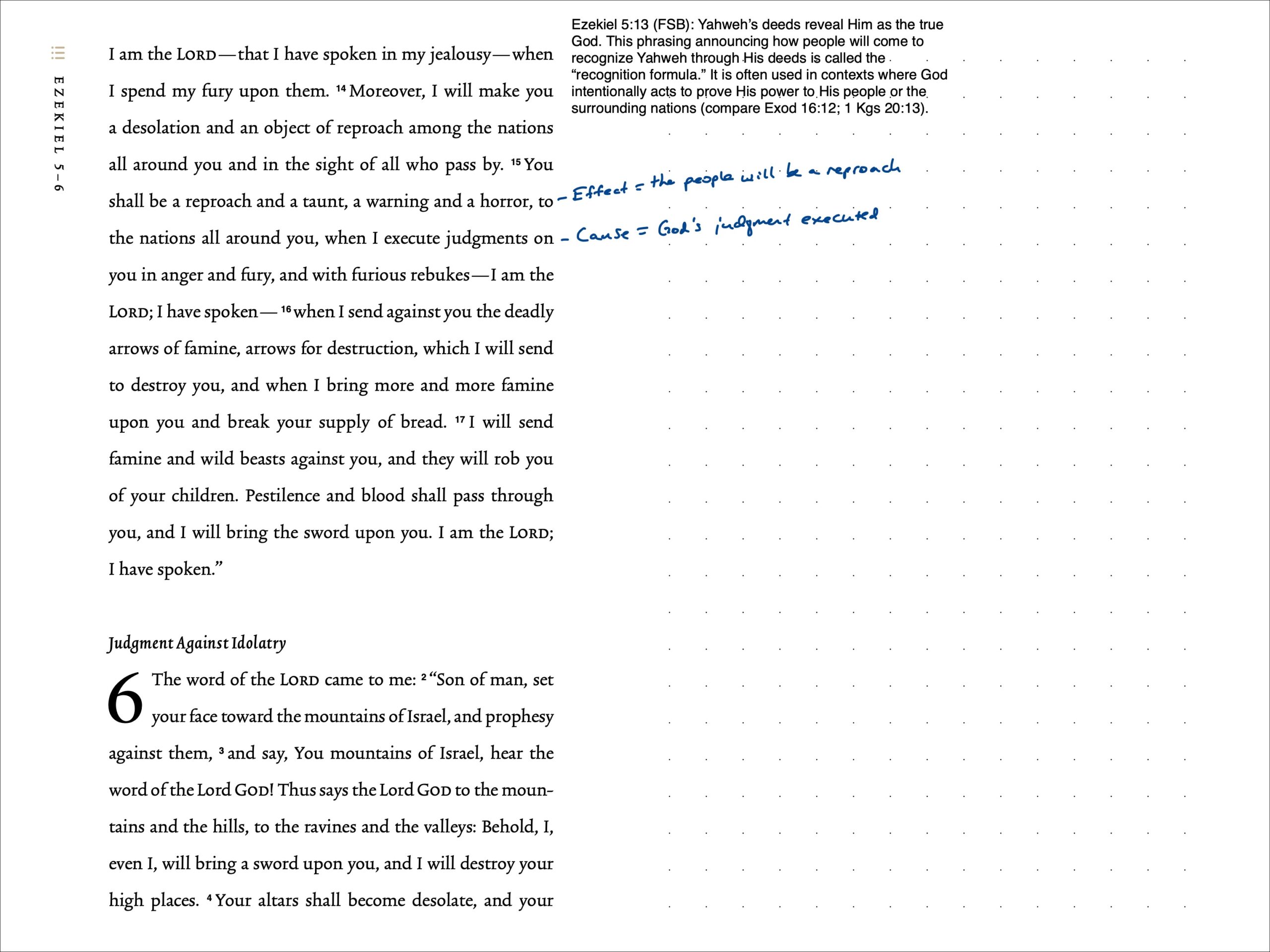| Date | Version | Reading Plan |
|---|---|---|
| @August 25, 2023 | ESV (2016) | ESV Prophets Plan 2023 |
Pericopes
- Jerusalem Will Be Destroyed
Notes
The chapter opens with God telling Ezekiel to use a sword as a “barber’s razor” to shave his hair and beard in order for it to be weighed and divided. Shaving one’s head was often associated with mourning rites (ex. Ezek. 7:8; Ezek. 21:31; Job 1:20). Mourning for the dead in this way was prohibited for the Israelites (Deut. 14:1). The weighing on scales was a symbol of evaluation for impending judgment (Prov. 21:2; Daniel 5:27).
Ezekiel 5:2-4 describes how the hair (representing the people) was to be divided. Two thirds of the population would be killed in the invasion and one third taken into exile. From the third of the hair depicting the people consigned to dispersion, Ezekiel was to bind some in the folds of his robe. This portrayed survival of only a remnant of exiles.
In Ezekiel 5:5-6, God speaks of how He set Jerusalem at the center of the nations. According to Deut. 4:7-8, Israel’s covenantal obligations gained her admiration from among the other nations. Had she obeyed the laws, she would have been the light of the world. But, as it were, she rejected His rules and refused to walk in His statutes, thus bringing judgment upon themselves.
In Ezekiel 5:7-12, God gives the consequence of the peoples’ apostasy and pronounces judgment on them. The word “therefore” is repeated 5x in this section, directly tying the sin and rebellion of the people with God’s treatment of them. Because of all their abominations, God will do what He had never done before or will ever do again (Ezek. 5:9). Things will get so bad that they will resort to cannibalism, a practice prohibited by Mosaic law (Lev. 26:29; Deut. 28:53) and denounced by the prophets (Isaiah 9:19; Jer. 19:9; Zech 11:9). The people will be divided into thirds (much like the division of the hair) with each having its own manifestation of judgment (Ezek. 5:12).
In Ezek. 5:13-17, God details the execution of His judgment to vent His fury upon the people and satisfy Himself. God says that through this “they shall know that I am the LORD”. This phrase repeated throughout Scripture of announcing how people will come to recognize Yahweh through His deeds is called the “recognition formula”. It is often used in contexts where God intentionally acts to prove His power to His people or the surrounding nations (compare Exod. 16:12; 1 Kings 20:13). God’s rebuke of the people will come in the form of arrows of famine, destruction, sending of wild beasts, being robbed of children and bringing the sword (Ezek. 5:16-17).
Application
Ezekiel is told in this chapter how the people were to be divided into thirds, each to have their own portion of God’s judgment. God had placed Israel in the center of the nations be an example and inspiration. Not only did they fail to rise to this honor, they actively sank into rebellion. God, in His perfect justice, had no choice but to do what He had never done before and the like of which He would never do again.
I can’t help but think of how this relates to our calling to exemplify the Lord as His ambassadors. We have been set apart to be light in the darkness, modeling His love and goodness, but so often our bulbs are dim. Whether by active rebellion, putting on a false facade or striving in our own strength rather than His, we end up misrepresenting Him. This should compel us to both healthy sorrow and abundant praise; that we worship a God who is sovereign and capable of making much of Himself despite our failures.
Scripture Journal Notes
Commentaries & Resources Used
- ESV Study Bible. (Wheaton, IL: Crossway, 2008)
- Faithlife Study Bible (Lexham Press, 2016)
- Believer’s Bible Commentary (Thomas Nelson, 2016)
- CSB Study Bible Notes (Holman Bible Publishers, 2017)
- Matthew Henry’s Commentary on the Whole Bible (Guardian Press, 1976)
- The Bible: A Reader’s Guide (Sterling Publishing, 2011)
- The Infographic Bible (Zondervan, 2018)
- ESV Digital Scripture Journal (Crossway, 2019)


